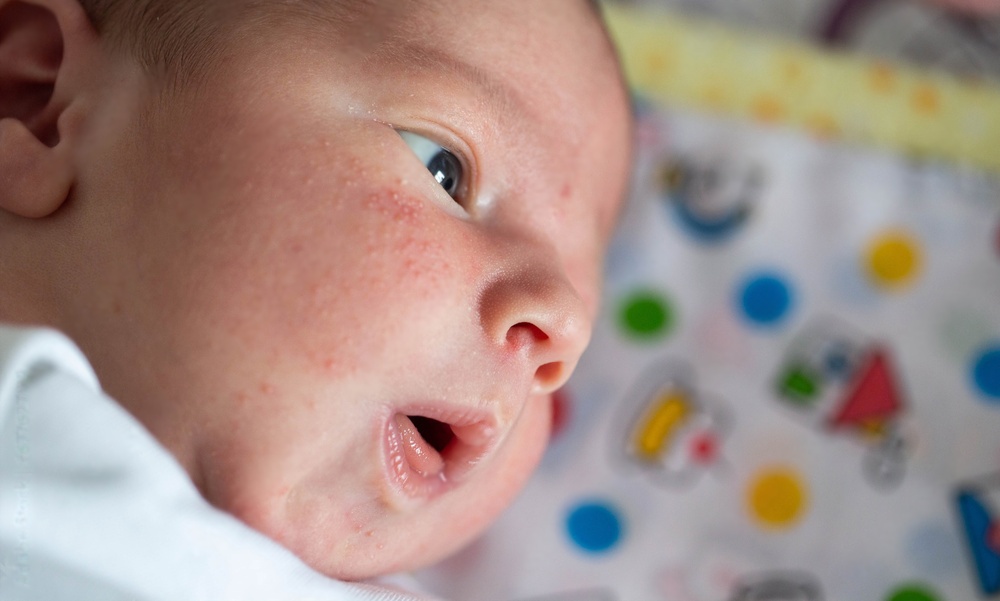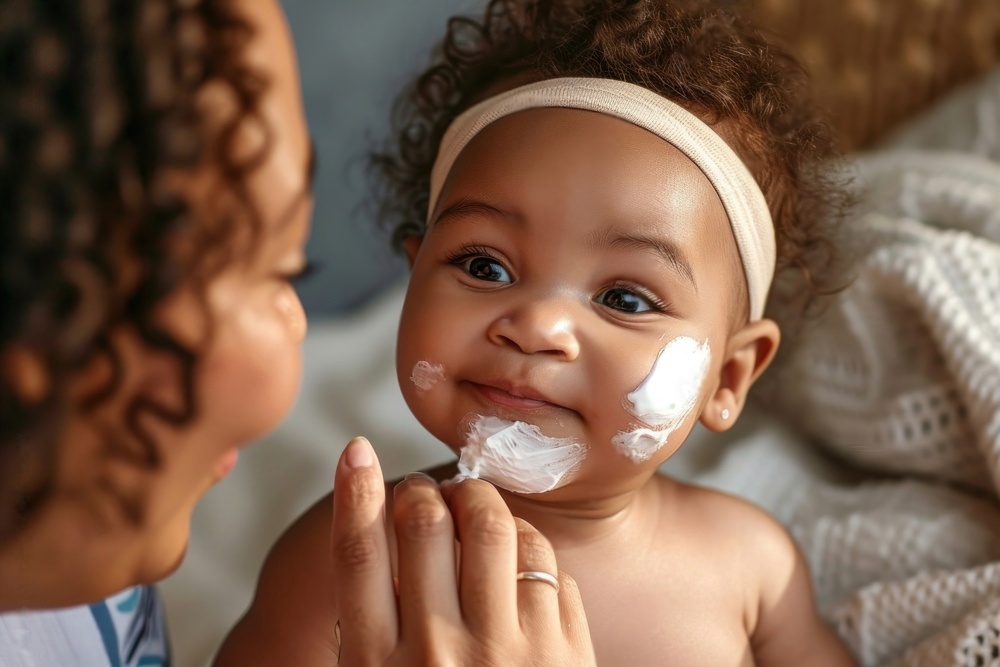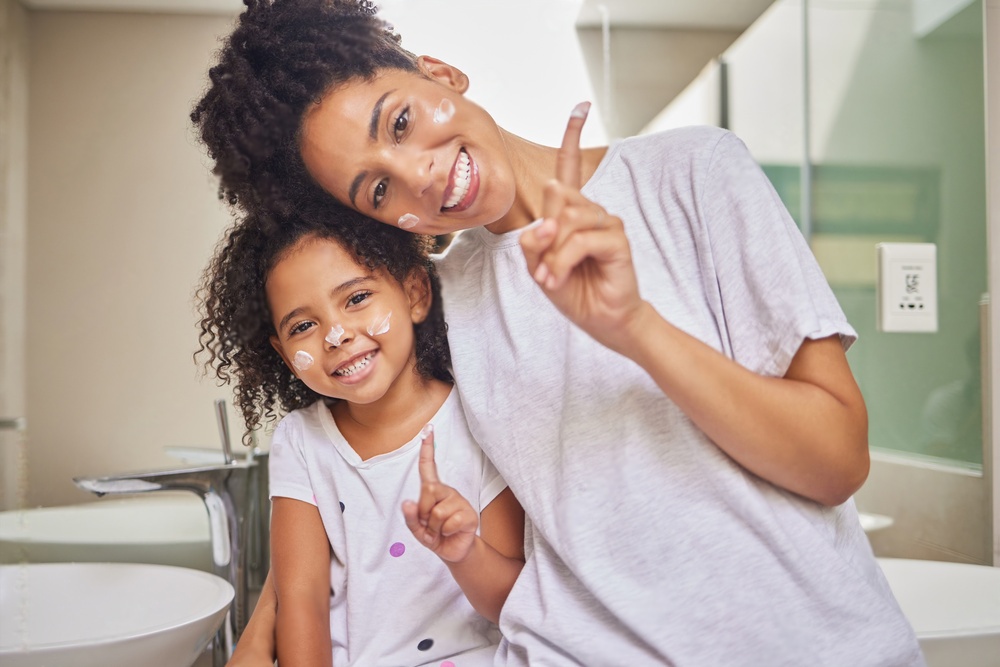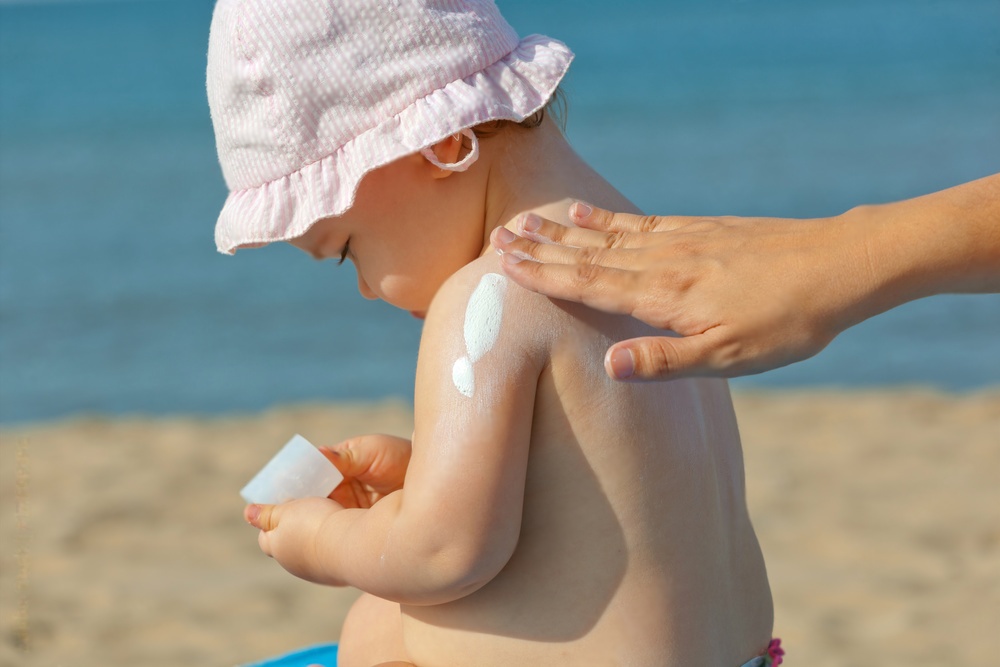Welcoming a newborn into the world brings immense joy and responsibility. One crucial aspect often overlooked is baby skincare. This article delves into the vital question: Why is Baby Skincare Essential for Healthy Development? Unravel the layers of information, expert advice, and personal experiences that highlight the significance of proper baby skincare practices.
Why is Baby Skincare Essential for Healthy Development?
Ensuring the well-being of your little one extends beyond cuddles and nourishment. Baby skincare plays a pivotal role in promoting healthy development. From maintaining a soft skin texture to preventing irritations, the reasons are manifold. As a parent, understanding the intricacies of this essential practice contributes significantly to your child’s overall health.
Building a Strong Foundation:
The early moments of a baby’s life are not only precious but also pivotal in shaping their future health and well-being. Every touch, every application of lotion or oil during these formative days is more than a routine; it’s a deliberate step toward building a robust foundation for your baby’s health.
From the very first gentle massage to the careful application of nourishing lotions, these acts go beyond the surface, permeating the very essence of your baby’s development. The tactile sensations from your touch communicate love and care, fostering a sense of comfort and security that is fundamental to their growth.
Creating a Positive Environment for Growth:
Imagine the impact of a soothing touch on your baby’s delicate skin – it’s not just a physical sensation but a language of love. Scientifically, skin-to-skin contact and gentle massages release oxytocin, often referred to as the “love hormone.” This not only strengthens the bond between you and your baby but also contributes to a positive emotional environment.
As you apply lotions or oils, it’s not merely about moisturizing the skin; it’s about creating a ritual that signifies care and attention. This ritual becomes embedded in your baby’s daily life, forming the basis for a positive association with self-care and health.
Fostering Comfort and Security:
Babies thrive in an environment where they feel secure, and the touch-based rituals of skincare play a crucial role in providing that security. The consistency of these practices establishes a predictable routine, offering a comforting anchor in the unpredictable world of infancy.
The lotions and oils used are not just skincare products; they are elements of familiarity and reassurance. The scents associated with these products become comforting signals, further enhancing the sense of security for your baby.
Contributing to Overall Health:
Beyond the immediate sensory experiences, building a strong foundation for your baby’s health through skincare has long-term implications. A well-moisturized and cared-for skin is less prone to irritations and dryness, contributing to the overall physical health of your little one.
Moreover, the positive touch experiences during skincare routines set the stage for healthy emotional development. Babies who feel secure and loved are more likely to explore their surroundings with confidence, laying the groundwork for cognitive and emotional well-being.
Protecting Against Irritants:
A baby’s skin, though soft and tender, is remarkably delicate and susceptible to a myriad of irritants that can cause discomfort and distress. Recognizing the vulnerability of your little one’s skin is the first step towards providing optimal care. Proper skincare isn’t just a nurturing gesture; it acts as a protective shield, warding off potential irritants and ensuring your baby’s skin remains healthy and radiant.
Understanding the Sensitivity of Baby’s Skin:
The delicate nature of a baby’s skin arises from its thinner epidermis, making it more permeable and sensitive than adult skin. External factors like harsh weather, allergens, and even certain fabrics can trigger reactions. This heightened sensitivity emphasizes the need for a proactive skincare approach to create a barrier against potential irritants.
The Role of Skincare in Prevention:
Effective skincare for babies is not solely about responding to issues but, more importantly, about prevention. It forms a crucial line of defense against common skin problems such as rashes, redness, and discomfort. The right skincare routine acts as a proactive measure, creating a protective layer that shields the baby’s skin from external aggressors.
Choosing the Right Products:
Selecting appropriate skincare products is paramount in safeguarding your baby’s delicate skin. Opt for products specifically formulated for infants, ensuring they are free from harsh chemicals, fragrances, and allergens. Look for labels that indicate hypoallergenic and dermatologist-tested to minimize the risk of irritation.
Establishing Protective Skincare Routines:
Beyond the choice of products, the way you incorporate them into your baby’s routine matters. Establishing consistent and gentle skincare routines plays a pivotal role in maintaining skin health. Whether it’s a soothing bath with mild baby soap or applying a fragrance-free moisturizer, each step contributes to the overall protective shield.
Preventing Diaper Rash and Redness:
Diaper rash is a common concern for parents, but with the right preventative measures, it can be minimized. Regular diaper changes, gentle cleaning, and the application of a protective barrier cream are key components of an effective skincare routine to prevent diaper rash and redness.
Creating a Comfortable Environment:
Skincare goes beyond physical protection; it creates a comfortable and nurturing environment for your baby. The gentle touch during massage or bath time isn’t just a routine – it’s an assurance of care, fostering emotional well-being that complements the physical protection against irritants.
Enhancing Emotional Well-being:
Skincare routines for babies offer a wealth of benefits that extend far beyond the physical realm. The gentle touch experienced during massage or bath time is not just a hygienic practice but a powerful tool for enhancing emotional well-being. These moments of care and connection contribute significantly to the emotional development of your baby, creating a bond that transcends words.
The Power of Touch:
Human touch is a primal and fundamental form of communication. For babies, whose understanding of the world is still unfolding, the gentle strokes and caresses during skincare routines communicate love, comfort, and security. This tactile connection becomes a cornerstone for emotional well-being, laying the foundation for trust and positive attachment.
Creating a Bond Beyond Words:
Skincare routines become more than a series of tasks; they transform into opportunities for bonding. Whether it’s the soothing massage after a bath or the gentle application of lotion, these moments foster a sense of connection between parent and baby. It’s a silent language of love that goes beyond verbal communication, building a bond based on trust and familiarity.
Emotional Comfort in Routine:
Consistency in skincare routines provides a sense of predictability and security for your baby. Knowing what to expect during these moments fosters emotional comfort, helping your baby feel safe and cared for. This emotional reassurance contributes significantly to a positive and secure emotional foundation.
Promoting Relaxation and Sleep:
The calming effects of skincare routines are not limited to the awake hours. The gentle touch and soothing motions during massage or bath time have been shown to promote relaxation, contributing to better sleep quality for babies. Quality sleep, in turn, is crucial for emotional regulation and overall well-being.
A Language of Love:
In the hustle and bustle of daily life, skincare routines offer dedicated one-on-one time for bonding. It’s a chance for parents to express love and affection in a tangible way. The simple act of applying lotion or giving a gentle massage becomes a language of love, reinforcing the emotional connection between parent and baby.
Long-term Impact on Emotional Development:
The emotional benefits derived from early skincare routines have a lasting impact on a child’s emotional development. Studies suggest that positive early experiences, especially those involving touch and close interaction, contribute to the development of a secure and emotionally resilient individual.
Developing Healthy Habits:
Introducing a skincare routine in the early stages of a baby’s life is more than a daily ritual – it’s a foundation for developing healthy habits that extend far beyond infancy. As your baby grows, these early experiences become valuable lessons, teaching them the importance of self-care and setting the stage for a lifetime of well-being.
Early Introduction to Self-Care:
From the first moments of skincare attention, babies begin to understand the significance of self-care. The gentle massage, the careful application of lotions, and the soothing bath create a positive association with personal care. This early introduction lays the groundwork for a mindset that values and prioritizes health and well-being.
Routine as a Teacher:
Consistency is key in instilling healthy habits. A regular skincare routine becomes a reliable part of a baby’s daily life, teaching them about the importance of regularity in self-care. Babies are quick learners, and the predictability of a routine helps them grasp the concept of taking care of oneself as a fundamental aspect of a healthy lifestyle.
Positive Associations with Hygiene:
Skincare routines create positive associations with hygiene. Bath time becomes more than just cleansing; it becomes an enjoyable experience associated with feeling fresh and cared for. These positive associations contribute to a willingness to engage in personal hygiene as your baby grows into a more independent stage of life.
Nurturing Independence:
As babies transition into toddlers, the skincare routine evolves, allowing them to participate actively. Simple actions like holding a lotion bottle or attempting to wash their hands contribute to the development of fine motor skills and foster a sense of independence. This hands-on approach establishes a foundation for taking charge of one’s health.
Laying the Groundwork for Lifelong Well-being:
The lessons learned during early skincare routines have a lasting impact. As your baby grows into childhood and adolescence, the groundwork laid in those formative years shapes their attitude towards self-care. They understand that taking care of their skin is not just a task but a reflection of the importance of overall health.
Cultivating a Healthy Mind-Body Connection:
Skincare routines also play a role in cultivating a healthy mind-body connection. The intentional touch and care teach children to be attuned to their bodies, recognizing signs of discomfort or changes in their skin. This awareness contributes to a holistic understanding of health that goes beyond physical appearance.
Positive Impact on Mental Health:
Studies suggest that early establishment of self-care habits can have a positive impact on mental health later in life. The routine, the positive associations, and the sense of autonomy in caring for oneself contribute to a resilient mindset and a positive self-image.
Addressing Common Concerns:
Parenting comes with a myriad of joys and challenges, and one aspect that often perplexes new parents is the care of their baby’s delicate skin. From cradle cap to diaper rash, these common skincare concerns can seem daunting, but with the right knowledge and effective solutions, you can navigate through these issues, ensuring a seamless journey through your baby’s developmental stages.
Understanding Cradle Cap:
Cradle cap, characterized by flaky and sometimes oily patches on a baby’s scalp, is a common concern for many parents. It’s essential to understand that cradle cap is generally harmless and often resolves on its own. Gently massaging your baby’s scalp with baby oil and using a soft brush during bath time can help alleviate cradle cap. In persistent cases, consulting with a pediatrician can provide additional guidance.
Tackling Diaper Rash:
Diaper rash is a frequent concern, causing redness and irritation in the diaper area. Preventive measures such as regular diaper changes, thorough cleaning, and using a protective barrier cream are essential. Choosing diapers with good absorbency and ensuring the diaper area is clean and dry before putting on a new diaper can significantly reduce the likelihood of diaper rash.
Dealing with Dry Skin:
Baby skin is naturally delicate, and dryness is a common issue. Using a fragrance-free, hypoallergenic moisturizer can help maintain the skin’s natural moisture. Ensure that the chosen product is suitable for sensitive skin, and apply it after bath time to lock in hydration. Additionally, maintaining a moderate room humidity level can prevent excessive dryness.
Combatting Baby Acne:
Baby acne, characterized by small red bumps on the face, is another common concern. While it may be distressing for parents, it’s generally harmless and tends to clear up on its own. Avoiding harsh chemicals and abrasive skin products is crucial. Gently cleaning the baby’s face with mild baby soap and water can help manage baby acne without causing irritation.
Handling Eczema Flare-ups:
Eczema is a chronic skin condition that can affect babies. It presents as red, itchy patches on the skin. Using fragrance-free and hypoallergenic skincare products, avoiding irritants, and keeping the baby’s nails short to prevent scratching are key preventive measures. If eczema persists or worsens, seeking advice from a pediatrician or dermatologist is recommended.
Seeking Professional Advice:
While many skincare concerns can be addressed with home care, it’s crucial to recognize when professional advice is needed. If a skin issue persists, worsens, or if you’re unsure about the best course of action, consulting with a healthcare professional, such as a pediatrician or a dermatologist, can provide personalized guidance and ensure the proper care for your baby’s skin.
Proactive Skincare Education:
Being proactive in understanding and addressing common skincare concerns is empowering for parents. Education is a powerful tool in navigating the intricacies of baby skincare. Arm yourself with knowledge about effective solutions, adopt preventive measures, and stay attuned to your baby’s unique needs. By doing so, you not only address current concerns but also pave the way for a healthy and resilient skin as your baby progresses through various developmental stages.
Expert Tips for Effective Baby Skincare:
Unlock expert tips to enhance your baby’s skincare routine. These tried-and-true recommendations come from seasoned professionals, offering invaluable insights into optimal baby skincare.
1. Choosing the Right Products:
Investigate the market for baby-friendly products. Opt for those free from harsh chemicals, fragrances, and allergens to safeguard your baby’s sensitive skin.
2. Consistency is Key:
Establishing a consistent skincare routine is crucial. Whether it’s a daily massage or a gentle bath, regularity enhances the effectiveness of the routine.
3. Sun Protection Matters:
Even the tiniest tots need sun protection. Explore safe options for shielding your baby from harmful UV rays and prevent sun-related skin issues.
4. Patience with Skin Conditions:
Many babies experience skin conditions. Patience is key. Consult with healthcare professionals, follow prescribed treatments, and give your baby’s skin the time it needs to heal.
5. Mindful Diapering:
Diapers are a constant in baby care. Learn the art of mindful diapering to prevent rashes and keep your baby comfortable.
6. Adequate Hydration:
Hydrated skin is healthy skin. Ensure your baby gets enough fluids and consider moisturizing routines to maintain their skin’s natural moisture.
FAQs – Your Baby Skincare Queries Answered:
Q: How often should I bathe my newborn?
A: Newborns don’t require daily baths. Two to three times a week is sufficient, using mild, fragrance-free soap.
Q: Are all baby skincare products safe?
A: No, not all. Choose products specifically formulated for babies, avoiding harsh chemicals and fragrances.
Q: Can I use regular sunscreen on my baby?
A: It’s advisable to use baby-safe sunscreen with minimal chemicals and a high SPF designed for sensitive skin.
Q: What should I do for cradle cap?
A: Gently massage your baby’s scalp with baby oil and use a soft brush to alleviate cradle cap. Consult a pediatrician for persistent cases.
Q: How do I prevent diaper rash?
A: Change diapers promptly, use a diaper cream, and ensure the area is clean and dry before putting on a new diaper.
Q: When can I introduce a more elaborate skincare routine?
A: As your baby grows, gradually introduce additional skincare steps, adapting to their evolving needs.
In essence, why is baby skincare essential for healthy development? It goes beyond superficial beauty, it’s about nurturing a foundation for a lifetime of well-being. By incorporating expert advice, consistent routines, and addressing common concerns, you pave the way for your baby’s optimal development. Embrace the journey, celebrate the milestones, and cherish the moments of caring for your little one’s delicate skin.



